In China and many parts of the world, the price of face masks has jumped significantly. I tried buying some online to be shipped to my apartment when I get back to China eventually, and found prices were high and delivery would take nearly a month. I placed an order with two different suppliers. Hours later the orders were simply cancelled. I guess it’s because they either decided to raise the price or couldn’t guarantee supply. All over the world, prices are probably going up.
Here in Hanoi, Vietnam, where we were lucky to be when things started becoming difficult in China with the Coronavirus outbreak, we went to a local pharmacy first thing on a Monday morning to buy some masks (pharmacies had been closed for several days due to the Tet holiday here, related to the Chinese New Year). There were people ahead of us buying up a big chunk of their supplies. We bought some for the next few weeks as well, and then more people came in looking for masks. Prices have apparently gone up since then with significantly increased concern about the Wuhan Coronavirus, though Vietnam has been very fortunate to have just a few cases.
Early this Saturday morning as we went on a walk to a nearby lake in the Old Quarter of Hanoi, I saw a small group of people on the sidewalk, the place where vendors of all kinds, especially little restaurants, set up shop, making sidewalks almost impossible to walk on sometimes. It looked like an opportunistic mom-and-pop operation with a big cardboard box of face masks, a cheap plastic table, and a makeshift sign.
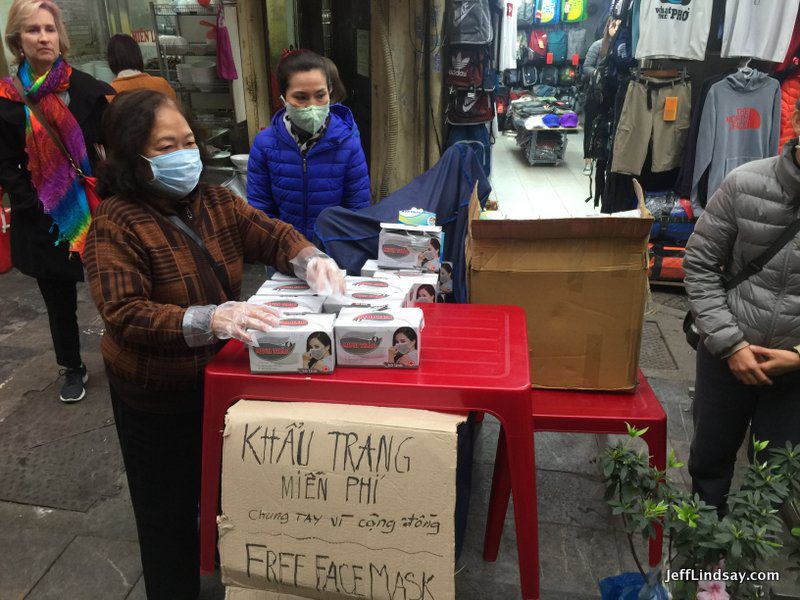 |
| Can you guess the price per mask from this operation in Hanoi, Vietnam? |
“Hmm, I wonder how much they are charging now?” Curious, I approached them and asked how much for a face mask. The answer completely shocked me.
“No price. They are free. Here, take two.”
What? What’s the catch? My wife and I were stunned, so we asked some questions to figure out what was going on here. Three women were running this operation: a young woman, her mother, and her grandmother. Three generations of women from this family have bought a big supply of masks and are now giving them out for free because they are worried about the unfair vendors who have jacked up prices. They want to do their part to make Vietnam a safer, better place. This was so unexpected, especially after a few encounters with unscrupulous cabbies, who taught us that “Happy New Year” means “I am about to rip you off.” But we will forget those cabbies in a couple of weeks. We will never forget the real people of Vietnam that we have met, the ones who value service and charity about their own finances.
We asked more questions. Is this for the government? For a church? A religion? Some organization? I wanted to know what the business model was. The business model, it turns out, is called love. No organizational agenda was behind this. It’s just what this family likes to do. They also organize events where they go to hospitals and cook food to help the sick and needy, feeding about 500 people at time. Wow, what a sweet family! We thanked them profusely not so much for the masks as for their love of others and the goodness that they radiate. Such beautiful people. Just like the local Vietnamese we met at Church last Sunday here in Hanoi and many others we have met as well. We have been touched by the good people of Vietnam.
At a time when others in the world are exploiting every crisis that comes along, how refreshing to see people jump in to serve and sacrifice, giving masks away for free. The sidewalks may not be easy to walk on, but the people of Vietnam make even a crowded, chaotic city like Hanoi such a beautiful place.
I asked for the name of the family. Their daughter wrote Cơm Nhân Ái in her beautiful handwriting on the last page of a sci-fi novel I had with me (Jiang Bo’s The Bookstore at the End of the Universe, FYI, which I’ve hardly touched on this busy trip), making the book all the more precious to me now. The mother, the mastermind of this operation, also showed me the family name on a graphic she had on her phone. I believe “Com” is the surname that may also mean “rice,” I think “Nhân” means “multiply” and while Google translate tells me “Ái” means craving, I prefer to apply the Chinese “ai” that means love. “Multiply the love.” OK, not accurate, but a nice way to remember the experience.
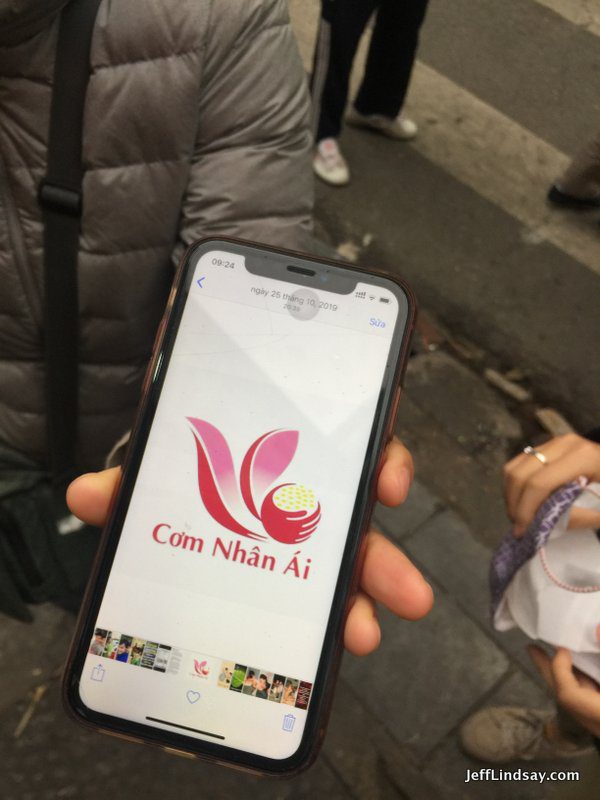 |
| The Cơm Nhân Ái family made my day. |
 |
| This mother is the mastermind
of this remarkable public service. |
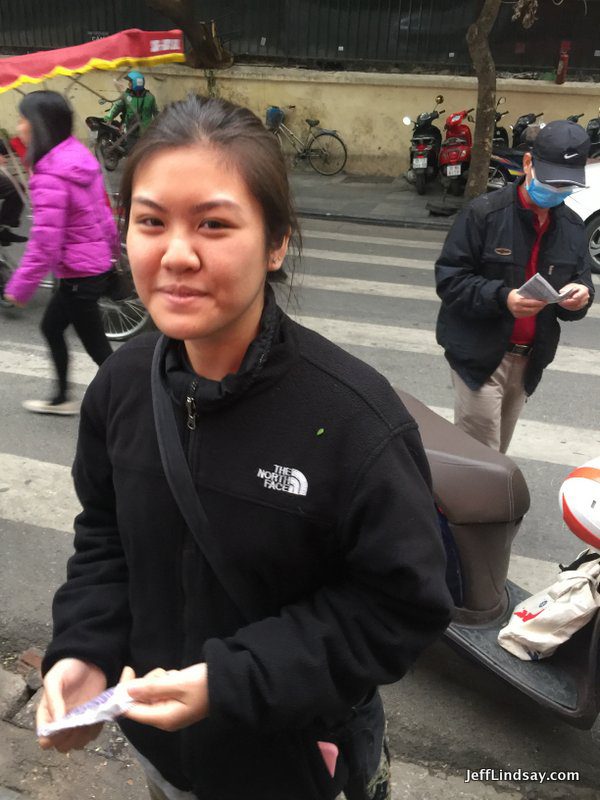 |
| The daughter told us about this family’s
regular service work. Wonderful! |
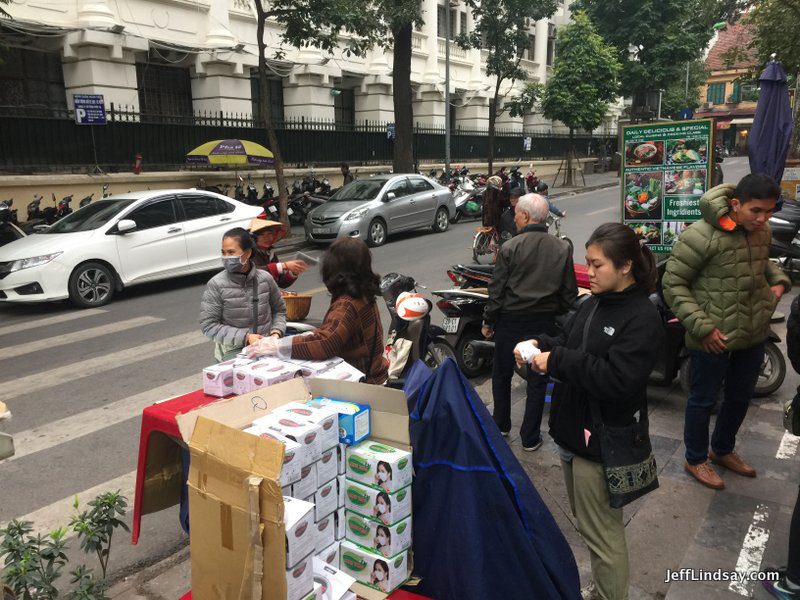 |
| Another view of the charitable project
early on a Saturday morning. |
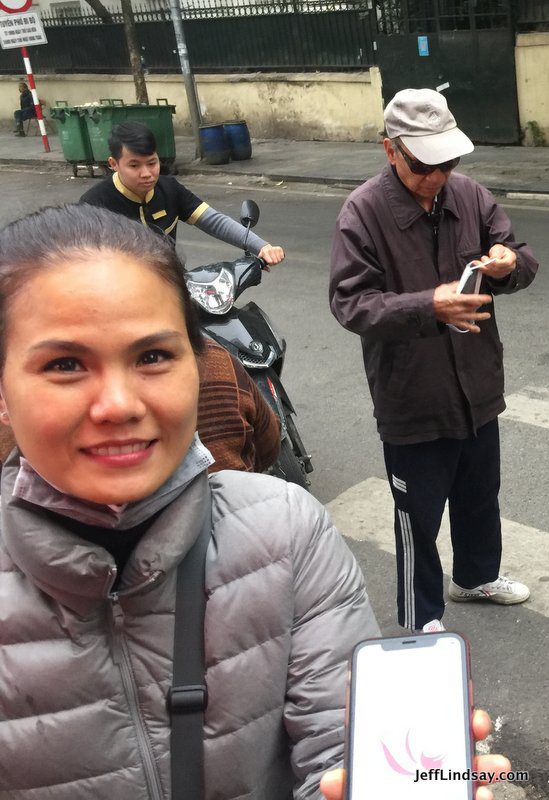 |
| Here is the mother without the mask.
Truly an amazing woman. |


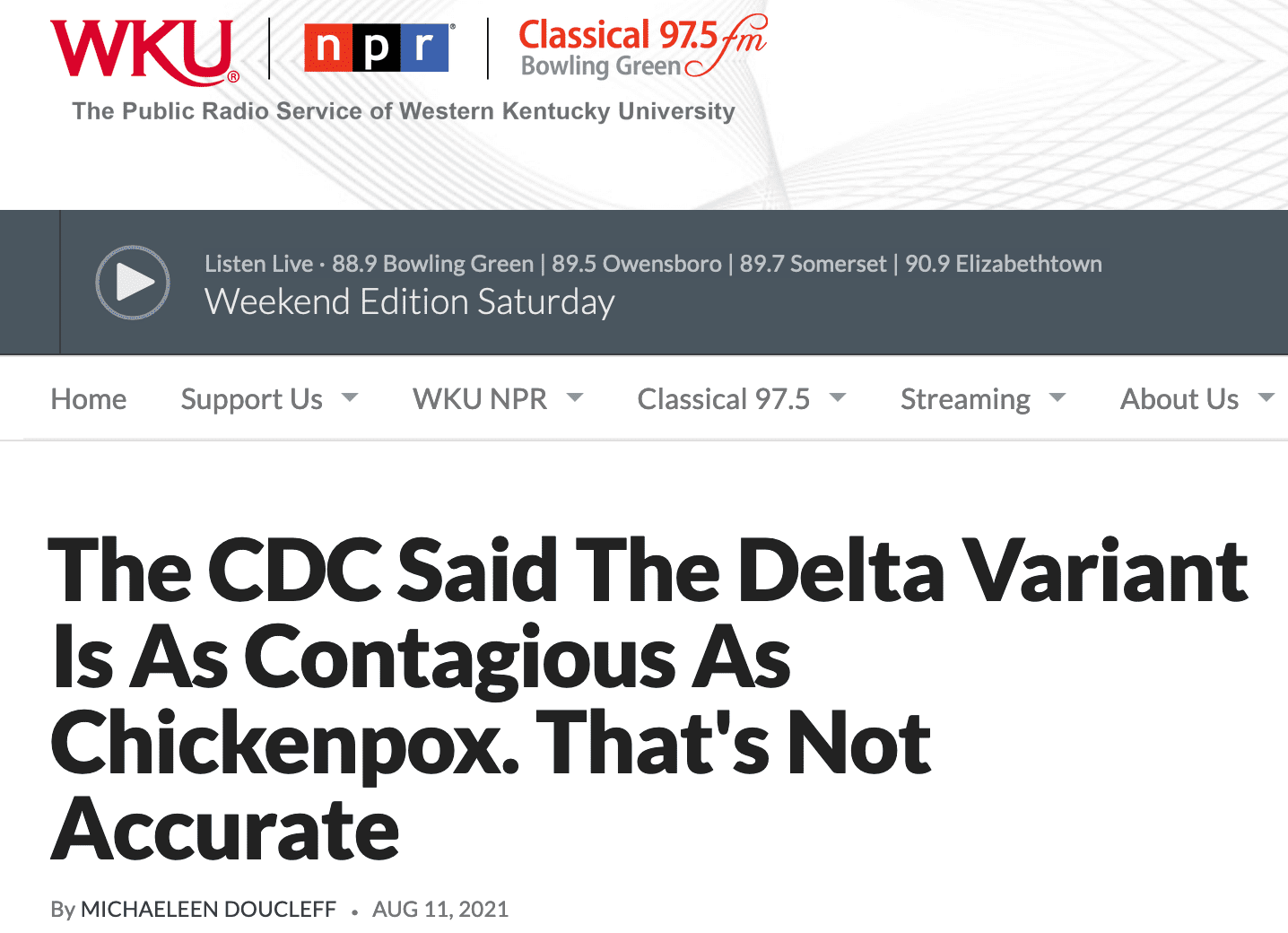







So touched with their kindness may their tribe multiply. Thank you for sharing it to us Brother Jeff.
Beautiful story of making the world a better place, one person at a time!
Cubby
This comment has been removed by a blog administrator.
I've deleted a couple of comments that use the kindness of people in Vietnam to denounce to Church for having saved financial resources. Guess what — that's completely off topic. A post on topic X is not an excuse for you to rant about Topic Y and Z.
If you want to tell me why you think every charitable organization, family, or government should avoid saving a small portion of their income (say, 10-14% a year) and instead spend all they get right away so they are always on the verge of bankruptcy, feel free to, but not here. That debate is better waged on the recent post, "The Hoarding Church."
I will note, however, that the reason this family was able to give generously in a time of need is that they had been HOARDING. Hoarding cash or hoarding supplies so that they had the capital to do good during an unusual time. So are you going to also condemn this family for having saved a fraction of their income for years, maybe 14% like the Church is alleged to be saving, thus allowing them to have capital in reserve to use for a crisis when needed? Hoarders! Think of all the good they could have done if they had refused to save a dime and spent everything they had, living on the edge of insolvency.
Unfortunately, contrary to what we learn from either political party in the US, the governments, businesses, families, and churches that are most likely to succeed long term are those that stay out of ruinous debt and build capital resources. It takes capital to grow business, create jobs, turn ideas into products that change the world, etc., and it takes capital to solve major crises when they arise.
The Vietnamese family had capital and was able to use it when it was needed to do good. The Church through sharing a reasonable, healthy, and small fraction of its income for years has acquired capital that can help it weather its own crises and can help it to do much when needed, including sending large amounts of medical supplies to China as the Church did recently. Economic health us measurable in part by capital that is available and created, not by how fast everyone spends.
I always like your slice-of-life and inspirational posts, and this post about that Vietnamese family was excellent. I have also been amazed at your willingness to allow, and even engage with, folks that have no interest in moving the conversation forward. They repeat the same arguments that are fully discussed elsewhere to thread-jack your posts. As with the 9:16 AM commenter yesterday, who accused you of intellectual dishonesty for keeping a post on-track, I often wonder if they are actually a false-flag operation by some misguided teenage member trying to make people that are against the church look bad.
Either way, while I admire your willingness to host comments like that, I applaud your choice to delete those that are nothing but off-topic trolling.
You are aware that he's been deleting comments, right? One that you can see in the string above and a previous one before it that he erased evidence of.
† ††
Matthew 17 [15] Lord, have mercy on my son: for he is lunatick, and sore vexed: for ofttimes he falleth into the fire, and oft into the water.
Revelation 17 [15] And he saith unto me, The waters which thou sawest, where the whore sitteth, are peoples, and multitudes, and nations, and tongues. [16] And the ten horns which thou sawest upon the beast, these shall hate the whore, and shall make her desolate and naked, and shall eat her flesh, and burn her with fire.
>>>>>>>>>>>>>>>>>>>>>>>>>>>
NEW TESTAMENT BIBLE STUDY
<<<<<<<<<<<<<<<<<<<<<<<<<<<<<
Billionaires are BRILLIANT !
scratchwiththechickens@gmail.com
seeking benefactor
!
† ††